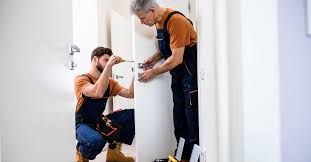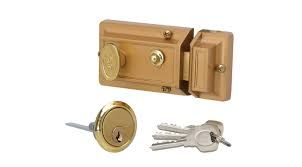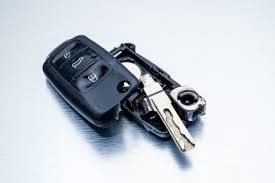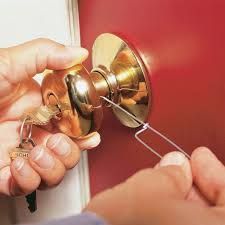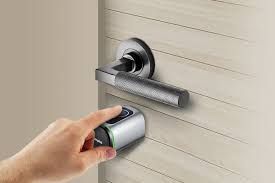24 hour Emergency Service
A reliable locksmith service can save the day when you get locked out of your home, workplace or vehicle. A 24-hour locksmith will be ready to provide a full range of residential, commercial and automotive services to help you gain entry where and when you need it most. Learn when to contact a locksmith for emergency service and find out more about how a master locksmith can help you gain access and maintain security.
Emergency Locksmith Service
Get peace of mind by having a quick-response service ready to call when you get locked out. Whether you need to get into your locked car, home or place of work, a locksmith can arrive quickly to help you get on with your day. Here are some emergency services that locksmiths can provide:
Emergency locksmiths can perform any of these services on short notice: helpful dispatchers will send a skilled locksmith to provide the timely help you need at any time and location in the service area.
Getting locked out is the most common reason for calling an emergency locksmith. Locksmiths can remove broken keys from locks and determine whether just the key or keys and a worn lock require replacement. These services may be available immediately or as part of more comprehensive residential or commercial locksmith services.
Beyond lockouts and lock malfunctions, emergency locksmith services are also helpful after a break-in. A property owner may want to change locks immediately to prevent further unauthorized access to the premises. An emergency locksmith can arrive on-site as soon as possible with everything needed to make any residence or workplace more secure.
Emergency locksmith services are available 24/7, and these jobs take priority over other locksmith assignments. A dispatcher will ensure the first available locksmith arrives on location as fast as possible to grant you entry to a building or handle important security measures.
Residential Locksmith Service
Residential
locksmith services are available for homeowners and the owners and managers of apartment buildings or multi-family dwellings. They can help you gain entry to your residence after being locked out or have locks and keys replaced. It is also possible to get more keys to allow every occupant access to a residence.
Master locksmiths can also help to unlock or maintain other security equipment, such as gates, safes or window guards. You can improve the security of your home by consulting with a residential locksmith about security options, such as upgrading doors, gates or window guards. All of these options may help to make your home more secure but also help to prevent you from accidentally losing access.
A full-service locksmith can recommend the most dependable access solutions for any single- or multi-family dwelling. Property owners can choose from a variety of lock designs such as cylinders, deadbolts, high-security locks, buzzers and intercoms and other options for home security. Homeowners, property owners and managers should rely on locksmiths who use equipment of the highest quality and provide expert installation services.
Commercial Locksmith Service
Commercial locksmith services start with unlocking the doors to a business when keyholders get locked out. These professional services extend to many methods for controlling entry or securing a structure. The following services may be available for commercial property owners and managers based on the design of the entrances and exits of a structure:
These options are available for installation during new construction and may be retrofitted to increase the security at an existing building. Depending on the location and layout of a building, any of these options may be a good choice for controlling entry and securing any part of a structure at any time.
A multi-level master key system is a popular option for securing a workplace. These keys provide unique access for certain keyholders or groups. Key-based security options can also be combined with digital access control measures for commercial security. Locksmiths can also unlock commercial safes for authorized parties or change combinations to enhance workplace security.
Commercial locksmith services may be useful for property owners and managers as well as professionals who require access to and the ability to secure one or more commercial buildings. Real estate agents, architects and interior designers may require a locksmith for commercial buildings or other structures. Locksmiths also provide access and security for the education, food service, medicine and retail industries.
Business owners should arrange for commercial locksmith services as soon as it becomes clear access is not available to a location. A locksmith will arrive on location and quickly restore needed access to authenticated parties.
A full-service locksmith can also consult with commercial property owners about upgrading security technology for entering or securing a commercial building. Several effective physical security options include upgrading equipment such as high-security locks, storefront locks and other door hardware such as panic bars.
Automotive Locksmith Service
Getting locked out of your vehicle can be more than an inconvenience. Call and request an automotive locksmith to come and open your car. In addition to providing customers with access to transportation, a service specializing in mobile locksmith jobs can often replace lost car keys. Some specialists can also unlock keyless entry or transponder keys or service a malfunctioning car alarm.
When you lock yourself out of your personal vehicle or commercial transportation, a locksmith can reach you fast and resolve the problem. Speedy service will get you on your way with minimal inconvenience. A full-service locksmith can also suggest solutions to help you avoid getting locked out of a vehicle in the future while keeping your car or truck safe and secure.
No matter when and where you need a locksmith, you can rely on a 24-hour locksmith service to arrive on the scene, resolve the problem and grant you access to your home, business or vehicle. Based on your location, you may require emergency, residential commercial or automotive services. A full-service locksmith can admit authorized parties to a structure or vehicle and recommend security solutions.
Call Us Any Time!
